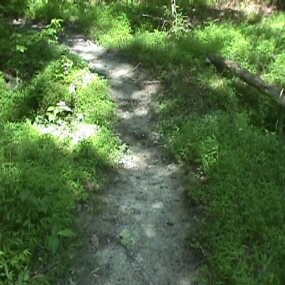
(NPS Photo) What qualifies as a nonnative species? Any species that is not indigenous to a particular area is considered nonnative. Nonnative species that compete with native species are considered invasive. A more specific definition, according to Executive Order 13112, of an invasive species is: 1) non-native (or alien) to the ecosystem under consideration and 2) whose introduction causes or is likely to cause economic or environmental harm or harm to human health. Nonnative species usually come into the United States through some sort of human introduction. In the past, and even still today, nonnative plants and animals have been intentionally introduced into America for different purposes. In many cases, these nonnatives turn out to be invasive and compete with the native species in an area. However, not all introductions are intentional. Goods that are imported to the United States are often shipped on wooden crates. These wooden crates can contain insects and plant diseases that are harmful to native species. Other exotics make their way into the United States in less perceptible ways. Many were brought over, in the past, for use in landscaping. Mimosa is one of the prime examples of a 'landscape exotic' that has wreaked massive damage to local ecosystems across the country.
Here is a list of invasive plants currently found in the Park. For more information, click the name of each plant. Common Name |
Last updated: February 26, 2015
